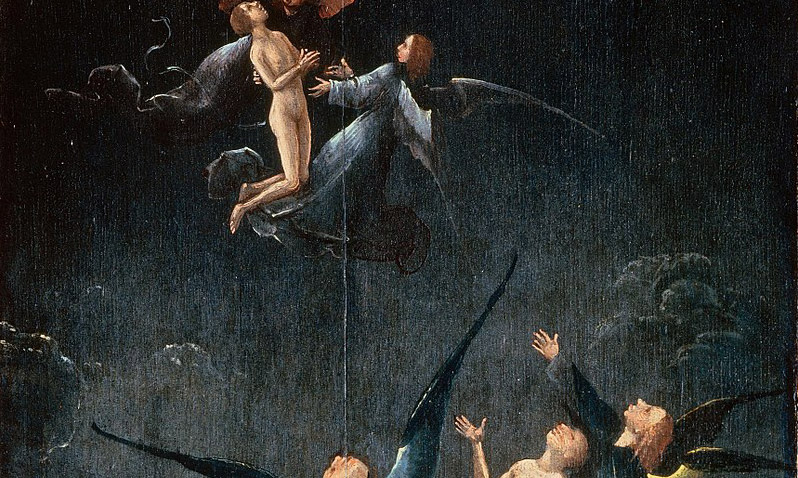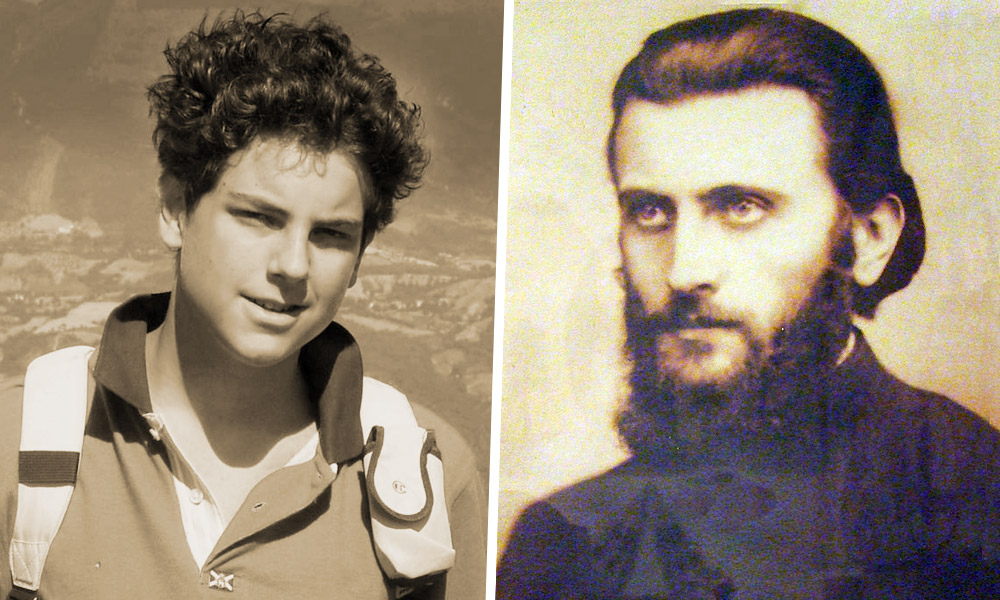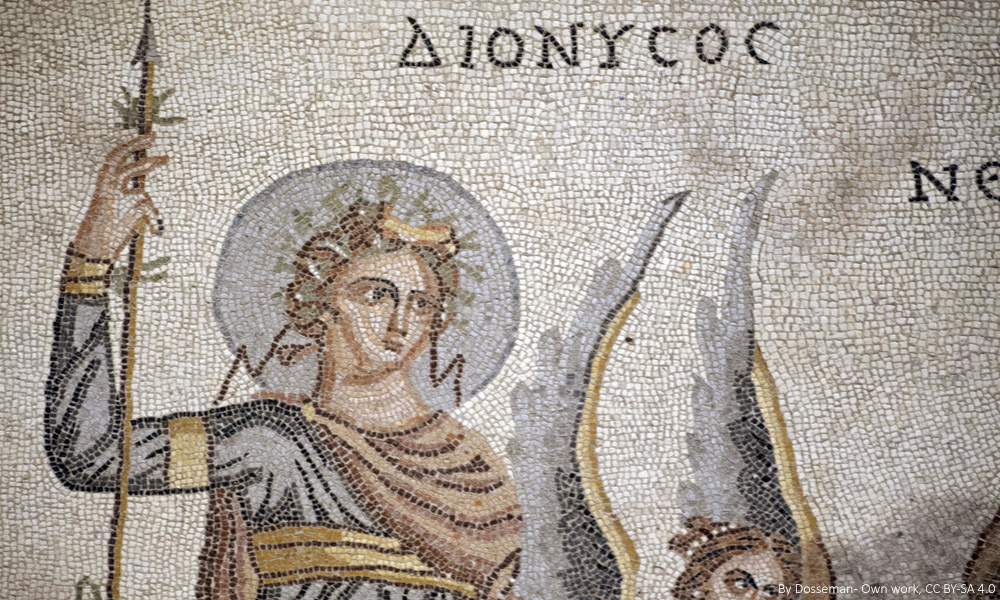
This article introduces readers to the Holy Spirit and its place not only within the Christian spiritual tradition, but in other religions as well. It approaches the Holy Spirit from a universal and interfaith perspective.
Introduction: The Mysterious Holy Spirit
Among the three persons of the Christian Godhead, also known as the Holy Trinity, perhaps none is so mysterious and poorly understood as the Holy Spirit, which is also called the Holy Ghost. The Holy Trinity is said to be God in three persons, or hypostases. God the Father and God the Son are most obviously persons, but what about the Holy Spirit? Is it also a person, just like the other two persons of the Trinity, or is it somehow different? And if it is different, then what exactly distinguishes it from the other two persons of the Trinity? And furthermore, is the Holy Spirit something that is unique or exclusive to Christianity, or do other religions also acknowledge it or have their rough equivalent of it?
How do we know where the Holy Spirit is, where to seek it or how to find it? In the fifth chapter of his epistle to the Galatians, the apostle Paul states that the fruits of the Spirit are love, joy, peace, forbearance, kindness, goodness, faithfulness, gentleness and self-control. Then there are the extraordinary gifts of the Spirit manifested by saintly or holy persons, such as prophecy, healing, miracles, the discernment of spirits and speaking in tongues. There are also sects and denominations of Christians who have been dubbed “holy rollers” because of their tendency to roll about and dance in the aisles of their churches when they feel they are filled with the Holy Spirit. But aside from its fruits and symptomatic manifestations, is there any way to perceive the Holy Spirit directly?
Jewish Antecedents
For most Christians, the Holy Spirit is right there in the opening chapter of Genesis, when it says that God’s Spirit moved upon the waters. The Holy Spirit is called Ruach ha Kodesh in Judaism. The word Spirit alone is translated as Ruach, and it is this same Ruach or Spirit, which could also be called the Breath of Life, that God breathed into Adam, making him a living soul. In Hebrew and in English, the very idea of breath is contained in the word Spirit, and in its derivative, inspire – which is to breathe spirit into someone or something. Many traditional cultures from around the world have their concepts of spirit or Life Energy; there is the Greek Pneuma, the Chinese Qi, etc…, and all of these have an intimate relationship with the breath. But Ruach ha Kodesh is Life Energy on a higher level than the merely biological; it is spiritual life energy and intelligence. Even though Judaism may acknowledge the presence of the Holy Spirit, they do not see the Holy Spirit as being a separate person within a triune Godhead simply because Judaism sees God as being an absolute, indivisible Unity, without the need for separate persons.
The Holy Spirit and the Christian Trinity
In Christianity, there is a triune conception of the Godhead in terms of a Holy Trinity of God the Father, God the Son and God the Holy Spirit. You can think of these three persons in the following terms:
God the Father is God the Absolute and Transcendent.
God the Son is God the immanent and manifest.
God the Holy Spirit is Divine Energy, or the kinetic dynamism of God in action.
There is a key difference of doctrine between the Western Catholic and Eastern Orthodox churches concerning the Holy Spirit and its role within the Holy Trinity. The Roman Catholic Church says that the Holy Spirit proceeds from the Father and the Son, whereas the Eastern Orthodox Church maintains that the Holy Spirit proceeds from God the Father only. This is the meaning of the Latin term Filioque – “and the Son”, which the Roman Catholic Church inserted into the Nicene Creed. Although, in an abstract, theoretical sense, all the three persons of the Holy Trinity are supposed to be coequal, the Filioque that the Catholics inserted into the Nicene Creed elevates the power and status of God the Son considerably, whereas the original Eastern Orthodox version leaves God the Son in a slightly more humble and subservient position.
As for myself, coming as somewhat of an outsider to Christianity, I have taken the somewhat skeptical or matter of fact position that the elevation of Jesus Christ to divine status as being coequal with God the Father necessitated the incorporation of a third person to round out the Christian Godhead from a duality into a Trinity. If there were just two persons within the Christian Godhead, their duality could easily lead to a state of antagonism or being at odds with each other, but with the addition of a third person, this potential for duality and antagonism is avoided, making for a harmonious and flowing inter-relationship of the three persons. It just so happens that this third “person”, the Holy Spirit, is the least person-like of all the three. Could the Holy Spirit have been a “Johnny come lately”, added to the Christian Trinity merely as an afterthought, to round out the original duality into a Trinity?
The Holy Spirit in the Christian Tradition
Although the Holy Spirit just may be the least person-like of the three persons of the Holy Trinity, the Christian tradition does indeed speak of the Holy Spirit in anthropomorphic terms. The Holy Spirit is called the Comforter, the Counselor or Paraclete, and the Spirit of Truth who will teach you all things. Before his crucifixion, Jesus makes these promises to his disciples:
If you love me, keep my commands. And I will ask the Father, and he will give you another Advocate to help you and be with you forever – the Spirit of Truth. The world cannot accept him, because it neither sees him nor knows him. But you know him, for he lives with you and will be in you.
– John 14: 15 – 17
A few verses later on, Jesus adds the following about the Holy Spirit:
All this I have spoken while still with you. But the Advocate, the Holy Spirit, whom the Father will send in my name, will teach you all things, and will remind you of everything I have said to you. Peace I leave with you; my peace I give you. I do not give to you as the world gives. Do not let your hearts be troubled and do not be afraid.
– John 14: 25 – 27
Jesus then finishes the discourse by reminding them of his impending departure. And then, on the Day of Pentecost, the disciples of Jesus receive the Holy Spirit. The Book of Acts tells us that the whole house was filled with the sound of a mighty, rushing wind, and cloven tongues of fire came to sit on the heads of all the disciples present. And, as the Spirit moved them, they began to speak in tongues – not like the meaningless jabbering of many present day Christians who claim to speak in tongues, but the amazing thing about this original speaking in tongues was that passersby from many different nations heard disciples speaking in the various tongues of their native lands, when all the disciples were all from Galilee. To me, this speaks of the universal Divine Intelligence aspect of the Holy Spirit – that it can speak directly to all, whatever their native tongue might be. The apostle Peter assures the crowd that they are not drunk, but the Holy Spirit has come, as prophesied by Joel; he also adds words that give an apocalyptic flavor and urgency to the whole phenomenon, and it appears that the disciples believe that they are living in the last days.
The passing of a great spiritual master like Jesus of Nazareth is always dreaded by their disciples, who have become too attached to the outer physical form and person of the master. “What will we do when you are gone?” is their constant refrain. The great Indian yogi and spiritual master, Paramahansa Yogananda, knew in advance of his imminent passing. As the fated day grew near, his disciples asked him, “Master, who could ever take your place?”, to which he promptly replied, “Only love can take my place!” It is in this same general spirit, I feel, that Jesus promised to send the Holy Spirit after his passing, assuring his disciples that they would be getting something greater after his departure in order to assuage their sadness and anxiety about the impending event. Not only is the Holy Spirit something that exists outside of us; it also exists within us as well. The disciples who felt the emptiness of loss after Jesus’ passing were soon filled with the Holy Spirit.
The Day of Pentecost, when the original disciples of Jesus Christ received the outpouring of the Holy Spirit, suggests to the believing Christian that the coming of the Holy Spirit, like other events in the Christian timeline, such as the Nativity, crucifixion and resurrection of Jesus Christ, are things that had a certain advent or occurrence that was fixed at a definite point in time. But if the Holy Spirit, as the third person of the Christian Trinity, is truly coequal and coeternal with God the Father, then it, like God the Father and God the Son, must have existed from the very beginning. Another question that is raised is whether the Holy Spirit is something that is exclusive to Christianity, or if it, or at least its rough equivalent, can be found in other religions as well. The main clue to the answer, I believe, is when Jesus says that he will give his disciples his peace, but not in the way that the world gives – and by that, I take that to mean that Jesus gave the Holy Spirit freely, to all who asked, Christian, Jew or otherwise. Yet most Christians, I would wager, believe that the Holy Spirit is available exclusively to Christians only, I fear. It is the way of the world, and I would include the institutional Christian religion in this category, to want to claim exclusive rights to something that is, in reality, freely available to receptive Souls everywhere.
The Holy Spirit as Divine Life Energy
Since the earliest days of my childhood, I have always felt the presence of the Holy Spirit as a form of all-pervasive spiritual energy. For many years, I was involved in a spiritual path called Eckankar, which taught that the Holy Spirit is heard as sound, and seen as light. There are many Bible verses that speak of the Spirit of God as manifesting as Light, and in the Book of Acts, the apostle Paul is blinded by the intense Light of the risen Christ while on the road to Damascus. There is also this rather curious biblical passage from the Gospel of Matthew:
The Light of the body is the eye: if therefore thine eye be single, thy whole body shall be full of Light.
– Matthew 6: 22
The above quote is from the King James Version; other versions or translations of the Bible differ considerably in their rendering of this intriguing passage, saying if your eye be whole, or healthy, etc…, but the key word here is single. By single, the King James Version of the Bible is referring to the single spiritual eye that is located in the middle of the forehead, between the two eyebrows. And those who meditate definitely know that if one focuses one’s attention on this single spiritual eye, their whole body will be filled with the Light of the Spirit. I feel that only the King James Version really got this passage of Jesus’ teaching right, whereas all the other versions are “third eye blind”. This is one of the reasons why I prefer the King James Version of the Bible, in spite of its rather quaint and archaic language.
Then, there is the sound of the Holy Spirit. The famous story of the Day of Pentecost from the Book of Acts tells us that the sound of the Spirit was heard as the sound of a mighty, rushing wind. Jesus himself, in his midnight dialogue with Nicodemus from the Gospel of John, also describes the Holy Spirit as a wind:
The wind bloweth where it listeth, and thou hearest the sound thereof, but canst not tell whence it cometh, and whither it goeth; so is everyone that is born of the Spirit.
– John 3: 8
This is indeed one of my favorite passages from the Bible, because Jesus is speaking directly about hearing the sound of the Holy Spirit, which reminds me of my days in Eckankar, when I tuned in to the sound of the Holy Spirit, and was connected with what Eckankar called the Audible Life Stream in my spiritual exercises. And not just the sound of the wind can be heard, but the sound of flutes, bells, violins and many other musical instruments can also be heard in what has poetically been called the Music of the Spheres. This divine music is so blissful and intoxicating, and is much more beautiful and enchanting than any worldly music that can be played. If one cannot hear any definite sounds or music of this Audible Life Stream, one can experience it as a subtle vibration. And this energy and vibration, if not heard, can definitely be felt. Become more energy aware, and feel the subtle vibrations of Spirit!
There is yet another way in which the Holy Spirit can be perceived, I feel, and that is by knowing, or experiencing an inner knowingness. This is the universal intelligence aspect of the Holy Spirit. Tuning in to the Holy Spirit in this way also means awakening or developing one’s innate powers of intuition. Divine intuition is definitely one of the gifts of the Holy Spirit, as is the power to discern spirits, to know which are good or beneficent, and which are evil or malevolent. The Holy Spirit will come, which is the Spirit of Truth, and he will teach you all things. Through the Holy Spirit and its inner presence, God will teach you everything you need to know, precisely when you need to know it. Just open up to the Holy Spirit in an attitude of trust and receptivity.
The Holy Spirit in Other Religions and Spiritual Traditions
At the outset, I am aware that many Christians may feel that the Holy Spirit exists only within Christianity, as Jesus’ divine gift to his children after his ascension to God the Father. There may yet be others who feel that the Holy Spirit might exist in other religions and spiritual traditions, but feel more comfortable staying within their own religious tradition, especially with subtle matters like the Holy Spirit – and I can’t blame them. And there may still be others who feel that, when it comes to the Holy Spirit, the Christian “brand” is the one they trust to be pure and untainted; beware of cheap counterfeits and false imitations! But from my own experience and spiritual perspective, which tends to be eclectic and universalist in nature, I believe that the Holy Spirit does indeed exist in other religions and spiritual traditions, and that Spirit is Spirit. The main thing that changes from one religion or spiritual tradition to another is, I feel, conceptual constructs or paradigms for understanding the nature of the Holy Spirit and from whence it comes. Jesus said that the Holy Spirit is with you and also within you, so the Holy Spirit is, by its very nature, something that transcends all duality between subject and object, us and them, and so on. We are all One in the Spirit, which flows freely.
I mentioned earlier about the Holy Spirit and its relationship to the biological Life Force, which could also be called the Elan Vital, the Ruach that God breathed into Adam when he became a living soul. Traditional healing systems the whole world over have some concept of this Life Energy, which powers all bodily functions. Greek Medicine calls it Pneuma; Chinese Medicine calls it Qi; Yoga and Ayurvedic Medicine call it Prana. There is yet another term for Spirit, or spiritual energy, that is used in certain forms of Yoga, particularly of the Tantric persuasion, and that is Shakti, and this Shakti is said to be feminine in its nature and origins. Certain master yogis are said to be able to perform a Shaktipat initiation on a disciple, which often sends them into a swoon of spiritual ecstasy. To the casual observer, at least, this seems to be mirrored in the spiritual healing performed by certain charismatic Christian preachers, in which a tap on the forehead sends the recipient to the floor in a swoon, after which they wake up healed. Spiritual healing is indeed one of the special gifts of the Holy Spirit. Another cross-cultural parallel that can be drawn when it comes to the Holy Spirit is its resemblance to drunkenness when one is filled with it, as Peter says on the Day of Pentecost; Sufi poets and mystics like Rumi, Hafiz and Omar Khayyam also wrote about divine intoxication with the Spirit in their poetry.
I spoke in the previous paragraph about initiation by the power of the Holy Spirit, and the whole idea of initiation implies an induction into an awareness of a previously hidden level of spiritual reality and experience. And although I feel that, sooner or later, all spiritually evolving souls will make their entry into this level of spiritual awareness, the manner in which this entry is made can be just as important as the mere act of entering. There have been cases in which certain individuals received too much of the Holy Spirit too quickly, and in a manner that was unbalancing or unsettling to them, with adverse effects on their mental and emotional health. This can also come from excessive spiritual practice all at once, without a period of adjustment or acclimatization; I wrote of the young man who locked himself up in his room and did yogic breathing exercises all day in my Spiritual Biography, so moderation in all things is advised. When seeking to learn about or open up to the Holy Spirit, working with a spiritual guide or mentor you know and trust is usually a good idea, and better than doing things all by oneself.




